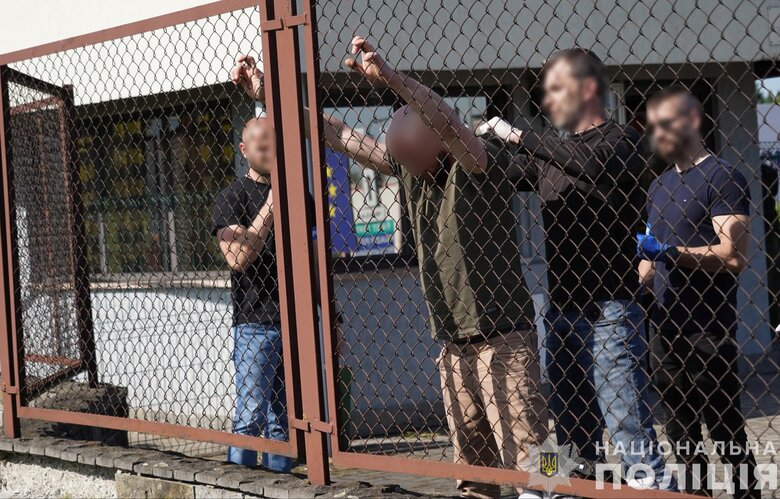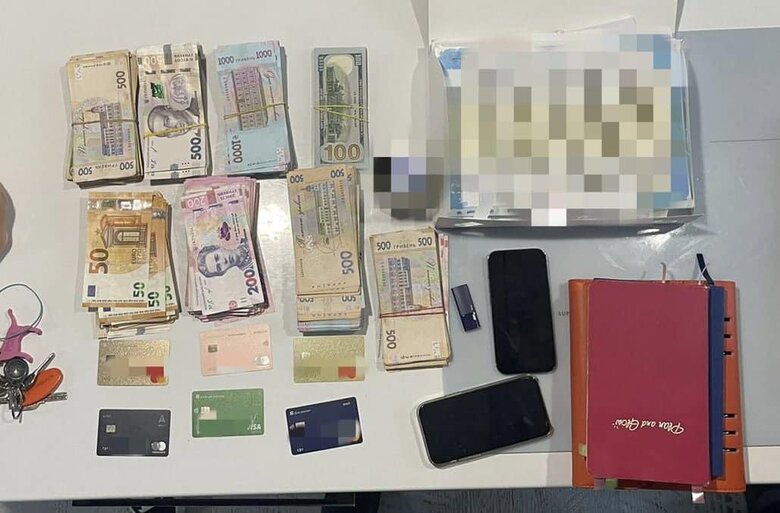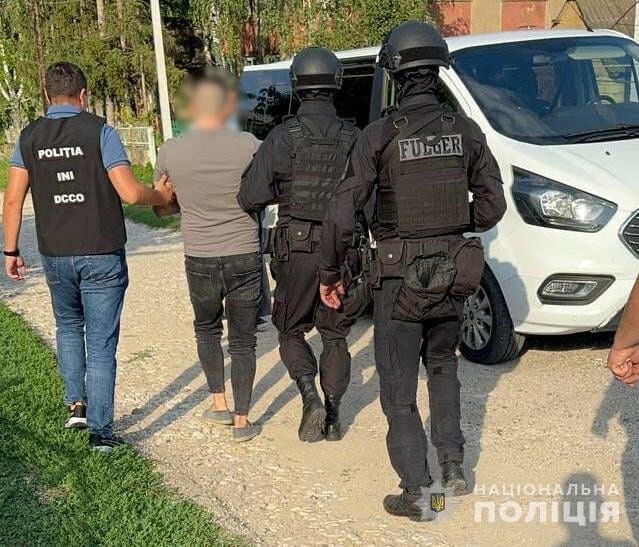Polygraph for fraudsters. How scammers "make money" on war victims and why they test each other on polygraph
Since the beginning of the full-scale war, the crime rate in Ukraine has dropped rapidly, but fraudsters have not only recovered quickly and diversified their schemes and approaches. Both civilians and military personnel are among their victims.
And while at first they mostly earned money by taking prepayments for ammunition or cars needed by the military and disappearing, now they also offer fake jobs to those returning from the front, persuading them to pay for training or literature, without which employment is allegedly impossible.
Censor.NET journalist found out what schemes have become the most common, how the military and their families suffer from them, and what to consider to protect yourself from scammers who make money from collections for the army and war victims.
FAKE BENEFACTORS AND EMPLOYERS
The fact that we were not ready for a full-scale war was immediately used by some criminals. They understood that war creates an atmosphere of stress, uncertainty and anxiety, in which people become more vulnerable to manipulation. Therefore, in the very first months of the full-scale offensive, a scheme related to the evacuation of people who tried to leave the war zone or move to a safer place from the frontline regions on their own became popular. The scheme consisted of promising to help people, taking an advance payment, and then simply falling off the radar.
Another option was to rent housing for people with pets. Ads posted on the Internet by alleged brokers featured photos of private homes whose owners were willing to accept a family with pets. They also asked for an advance payment as a holding deposit. And when people arrived at the place, it turned out that the house on the photos did not exist.
Similarly, from the very first days, the scammers got involved in fundraising for the needs of the military. They either raised funds themselves or saw what the military or volunteers were raising and went to their page to offer to buy something on "very favorable terms."
Currently, as the Main Investigation Department of the National Police told Censor.NET, one of the most common schemes is fake charitable organizations. Fraudsters even create websites for such organizations to make them look like real charities, or pages on social media, and ask for money to "help" war victims. People, wanting to help, often respond to such messages online without checking their authenticity.
According to Yevhen Kolesnyk, Deputy Head of the Main Investigation Department of the National Police, law enforcement officers have recently been actively identifying and stopping fake fundraisers that appear after massive rocket attacks. "For example, I can cite the work of police officers in Kirovohrad region who documented the fact of seizing funds from a citizen who, trying to help children who suffered as a result of a missile attack on the Okhmatdyt hospital, clicked on a phishing link sent to him by a fraudster and lost more than UAH 12,000 from his bank account. Zaporizhzhia investigators stopped the criminal activity of a local resident who, under the pretext of raising funds to help families who died as a result of a rocket attack on the city a year ago, seized funds worth UAH 280,000," said Yevhen Kolesnyk.
Another group whose members decided to make money from the war will be tried in Kyiv. This group operated for 10 months in 2022-2023, collecting donations allegedly to help children affected by the war, and seized funds worth almost UAH 11 million.
Fake charities are also set up to raise funds to help military personnel and their families. They may reach out to people via social media, email or even in person, encouraging donations.
Another popular scheme is fake job offers. Fraudsters post ads for well-paid vacancies or work from home jobs that seem very attractive. When a person responds to such an offer, they may be asked to pay for training, materials or other services that no one is actually going to provide - it's just a way to siphon off money. According to the National Police, fraudsters are also trying to reach out to military personnel who have been demobilised for health reasons or for some other reason and are looking for work.
"Phishing also remains very common. Fraudsters send emails, SMS or social media messages that look like official communications from banks, payment systems or other organisations to obtain confidential information such as passwords or bank details.
Identity fraud is no less relevant. In these cases, false documents or fake identities may be used to open credit accounts, obtain loans or make purchases on behalf of the victim.
The technical support fraud scheme is also still in use. Thieves pose as technical support representatives of well-known companies and ask for access to a computer or bank account information, promising to solve alleged problems with software or hardware.
Answering the question about the schemes that military personnel and their families suffer from, in addition to dealing with fake benefactors, the MID (Main Investigation Department) named several. The first one is fake payment notices. This refers to cases where a person may receive fake notifications about alleged payments, pensions or compensation that must be received through special websites. They ask servicemen or their relatives to enter personal data or even pay a fee to receive the funds.
Another scheme is real estate scams. Servicemen are offered to buy real estate on favourable terms using forged documents or non-existent property. After receiving an advance payment, these "sellers" disappear.
There are also offers to take out quick loans or borrow on favourable terms. At the same time, those who offer this require an advanced payment or fees for processing documents, after which they also disappear. Therefore, before clicking on any message and agreeing to anything, it is worth checking the information.
Speaking about situations where military personnel become victims of fraud, the National Police's MID cites examples where, having obtained confidential data of servicemen, fraudsters withdrew funds from their accounts. One of these cases was in the Dnipropetrovsk region, where a group of people was exposed who withdrew UAH 197,000 from a military man's account. Investigators in Cherkasy region proved the guilt of a local resident who, through the unauthorised use of software, carried out a series of transactions with the bank accounts of a serviceman, resulting in the loss of almost 160,000 UAH.
Such crimes are also committed against the relatives of deceased soldiers. One such situation occurred in the Kirovohrad region, where the fact of misappropriation of funds received by the wife of a fallen soldier as state aid was documented. The offender called the woman and introduced himself as a representative of the bank's security service. Having obtained the victim's confidential data, he took 3 million from her account.
HOW TO DONATE CORRECTLY
It is very important to check fundraisers to help the military or war victims and their authors to make sure that your money really goes to charity, law enforcement officials emphasize. Here are some recommendations on how to do it.
Firstly, check the authors of the fundraiser. This can be done by researching their profiles on social media or on the platforms where the fundraiser is being held. Look for reviews and recommendations from other people who have already donated. If the fundraiser is an official organization, find their website and check their information, including contact details and licenses.
Secondly, check the platforms where the collections are held. Reputable and reliable platforms have their own procedures for verifying users and fees, which helps reduce the risk of fraud. Read reviews of these platforms and make sure they have a good reputation.
Thirdly, pay attention to the transparency of the fundraising. Reliable organizers provide detailed information about the purpose of the fundraising, how the funds will be used, and how you can get a report on how the funds were used. If the information is unclear or missing, it could be a sign of fraud.
You can also contact official organisations that provide assistance to the military to see if they support a particular fundraising. Many well-known charities and volunteer organisations have their own programmes to help the military, and donating through them may be safer.
Do not hesitate to ask questions to the authors of the collection. Ask them about the details of the project, who exactly will be helped, and how you can confirm that the funds have actually reached the recipients. Real fundraisers are always ready to provide all the necessary information and answer your questions.
Similarly, law enforcement officers advise law enforcement agencies to pay attention to the security of their own social media pages, especially the military. As such situations, when the military's social media pages are hacked and money is asked for on their behalf, also occur. Fraudsters use hijacked accounts to contact friends and relatives of victims to ask for financial assistance, creating the illusion of urgency and danger. This can lead to the loss of money and the sharing of confidential information.
As the National Police explained to us, to protect yourself from such frauds, it is important to follow several recommendations. First, use strong passwords that include letters, numbers, and special characters, and change them regularly. Second, enable two-factor authentication on all your accounts to further protect them from unauthorised access. Third, be alert to suspicious messages and requests, even if they come from people you know. If you receive a request for help, always try to confirm its authenticity by calling or writing directly to the person.
It is also worth limiting access to personal information on your social media pages by setting up privacy so that only trusted individuals can see your posts and data. Finally, be wary of suspicious links and applications that may contain malware. If you suspect that your page has been hacked, change your passwords immediately and notify the social network's support team.
WHEN YOU ARE LOOKING FOR A MILITARY, FRAUDSTERS ARE LOOKING FOR YOU
Through social media, fraudsters can also write in the private message inboxes of military relatives. This happens in cases when the military does not get in touch for a long time and their relatives are looking for them, posting posts asking for information if anyone knows anything. Recently, in an interview with Censor.NET, the Commissioner for Persons Missing in Special Circumstances, Artur Dobroserdov, said that there are cases when relatives of military personnel report that they receive calls from people who say that the soldier is allegedly in captivity and ask for money for information. "Fraudsters see a post on social media that a person is looking for a missing soldier, understand the psycho-emotional state of the person, and take advantage of it. They collect information from other open sources, then prepare their own version of events and call the author of the post. For example, they say that a soldier is in captivity and is allegedly in serious condition and needs surgery. Then they say the amount of money that the soldier's family should transfer to a bank card. They say they will do nothing until they receive the money. And, unfortunately, many families have fallen victim to such fraudsters," Dobroserdov said.
After this conversation, I asked the police what a person should do if they are looking for their loved one on social media and are targeted by such fraudsters. On the one hand, it is understandable that people will write posts when they are desperate to find someone. On the other hand, law enforcement officers would be able to document the actions of such scoundrels if a person understood who to contact, whom to consult in such a situation, and was confident that this communication would not harm the search.
The first advice I heard from law enforcement officers in response to my question was to call 102 or go to the district police station. Of course, you can do that too. However, it is unlikely that many people will heed this advice and get the kind of response that would help them respond quickly to the actions of those who contacted to report something about the soldier. So I asked the cyber police unit if I could contact them in such cases.
"You can contact our department directly, and we will respond to such requests immediately," explained Oleksandr Ulianenkov, head of the Cyber Police Department's Online Fraud Prevention Branch, "You can come and report it, or you can submit an application online, through electronic requests, and we analyse them daily. For example, in one of the cases, the relatives of the servicemen who faced such fraud are abroad and cannot come, but we are also working on it. The military can also report crimes committed against them to us through electronic appeals if they cannot come in person and write a statement. In the descriptive part of the letter, it should be indicated that it is about a serviceman or a family member of a serviceman. We take all these appeals into consideration and simultaneously pass on the information to the territorial police units because we cannot open criminal proceedings - this is the prerogative of the investigation."
Commenting on such situations, he noted that the pretexts for writing to the military's relatives can vary. "It happens that a military wife receives a letter from a man who introduces himself as the commander of a military unit. He says that he knows where her husband is and can send him a parcel, but I have to go 700 kilometres to get there, so please send 4,000 for petrol. Or they make up other excuses so that the person believes them and sends money. The money is usually small, perhaps because not all people want to go to the police. But even though they seem to take a pittance, they make a good living due to the number of people they defraud. Therefore, it is very important to report such cases."
"CATCHING" VICTIMS IN CELEBRITY PHOTOS
When commenting on fraudulent schemes, law enforcement officers also draw attention to the fact that during the war, members of international criminal organisations, including foreigners, are also trying to implement them in our country. Last year, Ukrainian law enforcement officers extradited to the Czech Republic members of criminal groups that had defrauded hundreds of Czech citizens while they were in Ukraine. These are two groups, each of which has set up call centres.
According to Artem Shevchyshen, Deputy Head of the Main Investigation Department of the National Police, under the Criminal Procedure Law of Ukraine, law enforcement agencies of foreign countries do not have the right to conduct any investigative (search) actions on the territory of Ukraine on their own. Such investigative actions can only be carried out by the law enforcement agencies of Ukraine on the basis of a request for international legal assistance, including with the participation of representatives of law enforcement agencies of other states. However, this procedure takes time. That is why criminals commit offences while they are on the territory of Ukraine, knowing that it takes a long time to identify and apprehend them. Also, criminals do not commit crimes against Ukrainian citizens, because then the law enforcement agencies of Ukraine will be able to detain them and bring them to justice under domestic law.
Perhaps they also hope that law enforcement officers will be more involved in performing tasks in the combat zone, as the media constantly report on their involvement in the brigades that are at war.
"In the first case, the detainees had a telephone database of Czech citizens whom the fraudsters called and deceived. In this, they were helped by certain psychological skills and the ability to conduct a conversation, manipulate information, and the talent to persuade people to take the actions they needed," said Artem Shevchyshen. - "In the second case, the victims were selected using databases purchased on the Internet from unidentified persons, after which they were offered to follow their instructions by "cold callings" anyone who picked up the phone."
During the calls, the fraudsters, who were part of one of the groups, used spoofing technology, i.e. replacing the phone number with any desired one. Posing as security officers of a banking institution, they informed the victims that their bank account had been hacked and that in order to keep their funds safe, they should temporarily transfer them to another "safe" account provided by the criminals.
The group was detected and detained through a series of investigative and procedural actions, including information provided by Czech law enforcement officers on the movement of victims' funds, connection to victims' devices, after which the group was located and detained in Ukraine through the circle of persons and network traffic.
The other day, law enforcement agencies in Ukraine, Moldova and Romania simultaneously conducted a special operation to dismantle a fraudulent scheme, several of whose organisers were Ukrainians.
The criminals acted according to the following scheme: they created advertisements on Internet sites offering citizens the opportunity to make safe, quick, and, most importantly, high earnings after making small investments. The celebrities depicted in the adverts or the official logos of large local banks inspired trust among potential victims, which allowed the offenders to defraud a large number of people. The adverts contained a link to a website where potential "customers" were offered quick income after visiting.
Interestingly, using people's trust as a tool, the fraudsters tested call centre employees with a polygraph.
War makes us vulnerable. And criminals are skilfully exploiting this. You should take this into account when you want to help someone or earn some money for yourself.
Tetiana Bodnia, Censor.NET




